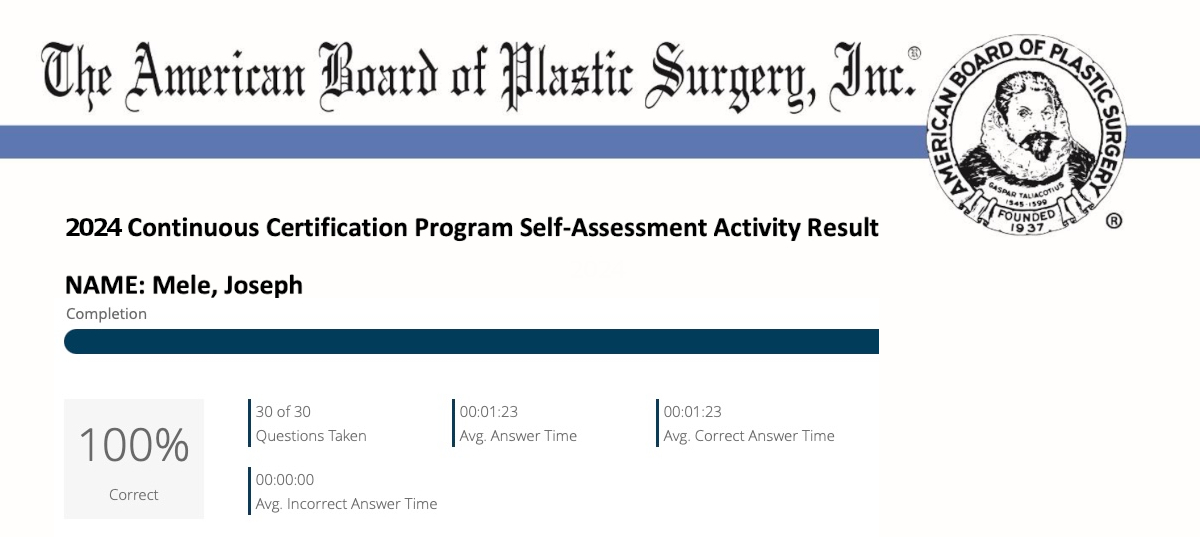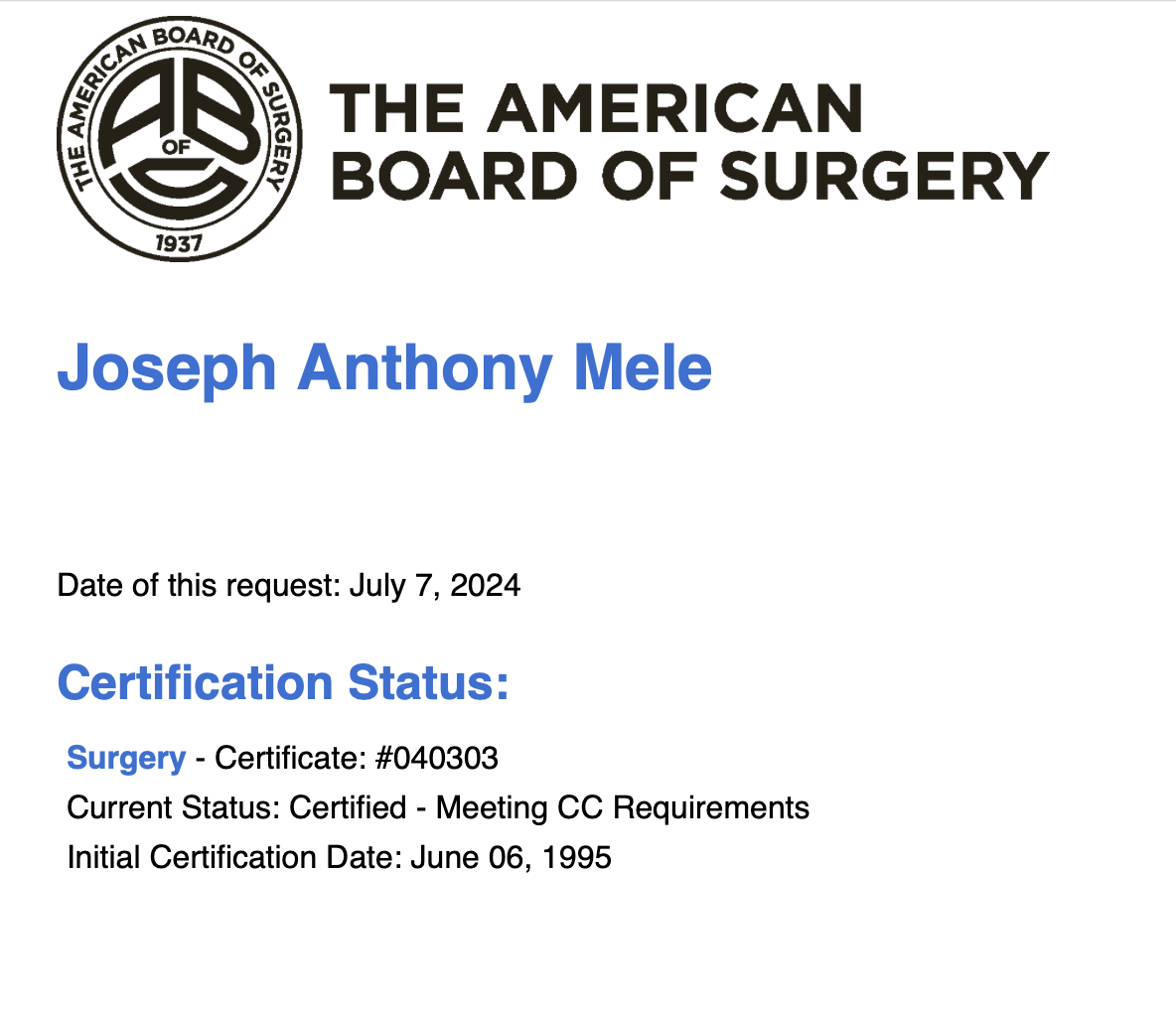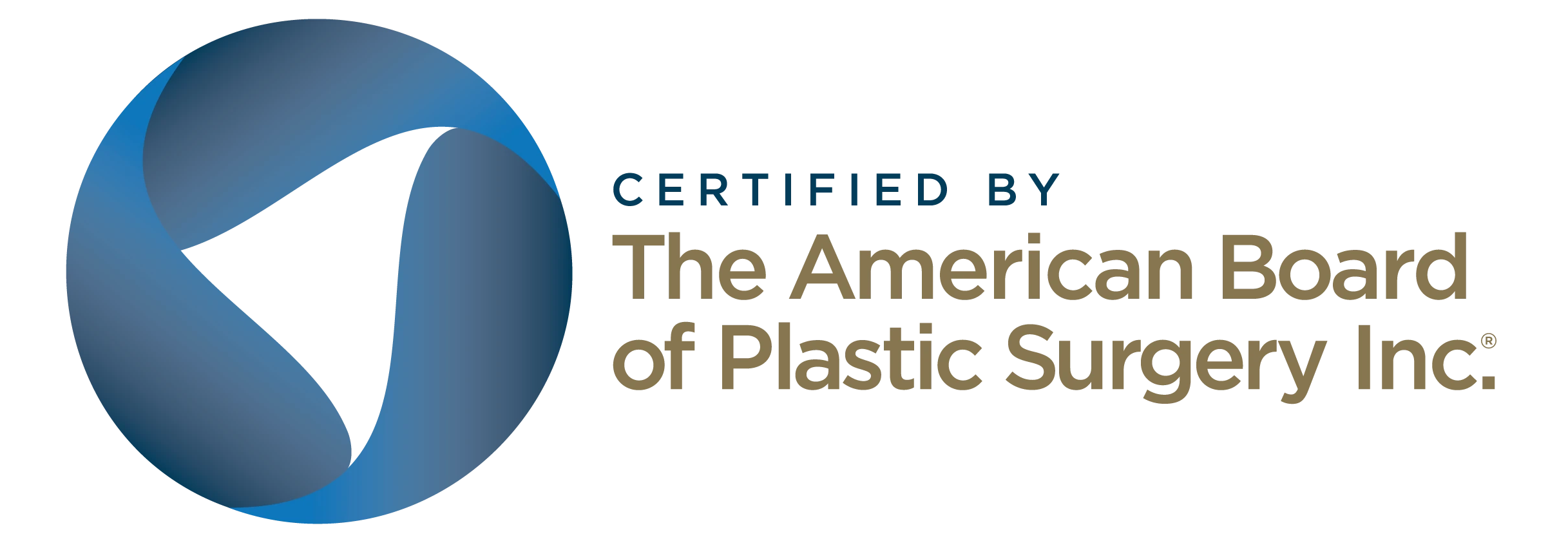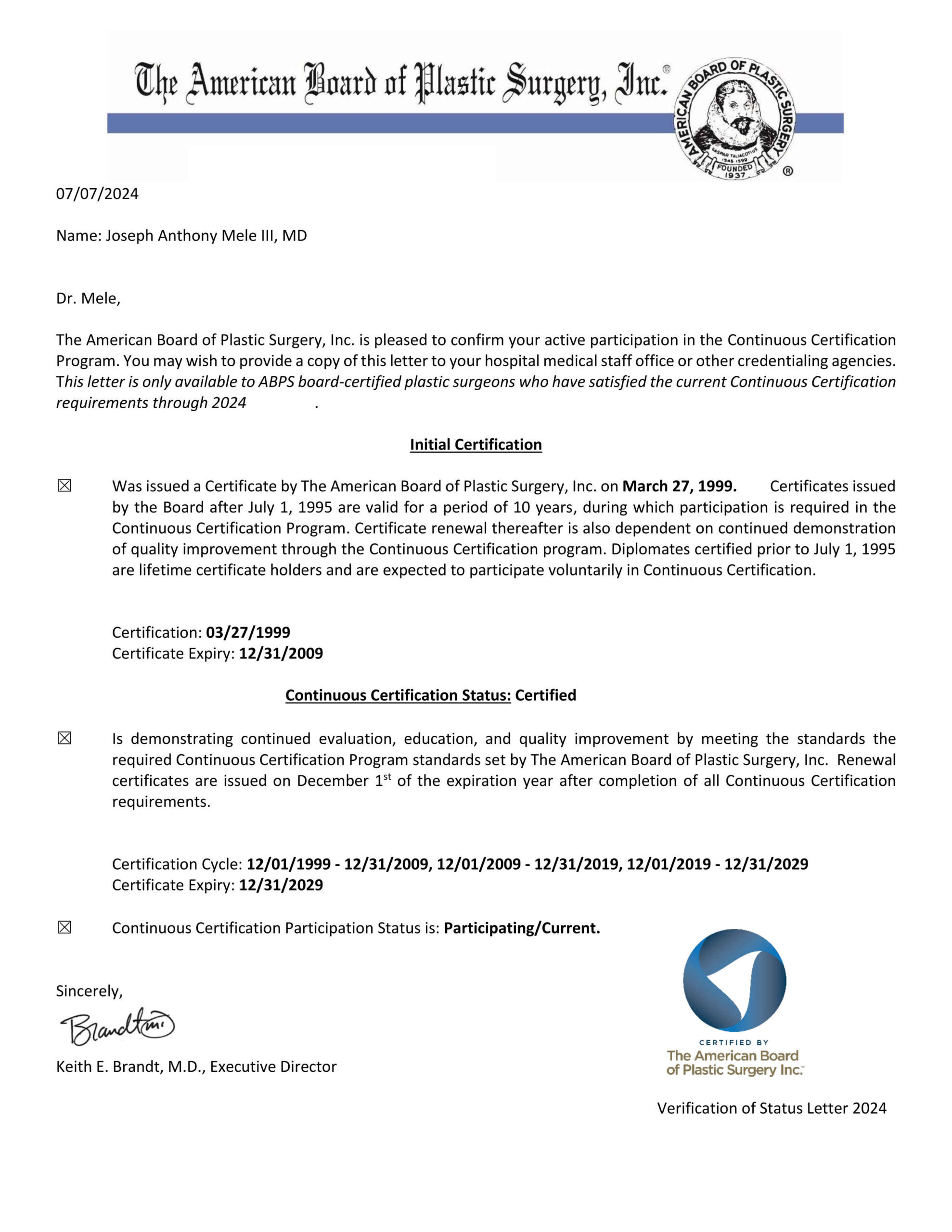“The Mission of the American Board of Plastic Surgery Inc., is to promote safe, ethical, efficacious plastic surgery to the public by maintaining high standards for the education, examination, certification and continuous certification of plastic surgeons as specialists and subspecialists.”
The statement above is the mission statement of the American Board of Plastic Surgery (ABPS), the primary board for certification of Plastic Surgeons in the United States. Directors of The American Board of Plastic Surgery are actively engaged in the practice of plastic surgery. Importantly, these members volunteer to serve without remuneration.
A Brief History of Plastic Surgery Board Certification
Before 1995, Board Certified by the American Board of Plastic Surgery meant a candidate was trained in a certified program and passed a series of examinations.
In 1996, this changed to Maintenance of Certification. During this era, a plastic surgeon was required to pass a recertification examination every 10 years.
Currently, the board is shifting to Continuous Certification.
What is Continuous Certification?
Continuous Certification by the American Board of Plastic Surgery includes annual self-assessment examinations and practice improvement throughout the ten year certification period.
My ABPS Continuous Certification
I received my first Board Certification in 1999, so every year I must pay a continuously increasing fee and complete a list of requirements. One new facet of the Continuous Certification requirements is that I have to take an examination every year. Below are my results.

The American Board of Plastic Surgery now provides continuous certification for enhanced public safety.
More details on my initial certification and recertification can be found in this previous post entitled: Board Certified by the American Board of Plastic Surgery.
Other Board Certifications
Some Cosmetic Surgeons have other certifications. Most of the time, these are in addition to the ABPS Certification. More worrisome however, is when these are instead of ABPS Certification.

The American Board of Surgery also requires recertification.
In my case, I am Double Board Certified. This means I am certified by both the ABPS and the American Board of Surgery. Before my three year fellowship in Plastic Surgery, I completed a full residency in General Surgery, including a chief resident year. This makes me eligible for Board Certification by the American Board of Surgery (ABS). I obtained my Surgery Boards in 1995, and have recertified three times. Beginning in 2025, I will be required to move to continuous certification for this board as well.
Other Board Certifications
There is a lot of overlap between Plastic Surgery and other specialties. In 1937, the American Board of Plastic Surgery was formed primarily by General Surgeons and Otolaryngologists (Ear Nose of Throat Surgeons) who specialized in plastic and reconstructive surgery. Plastic Surgeons have pioneered reconstructive surgery such as breast reconstruction, hand surgery, wound care, burn reconstruction and the treatment of congenital anomalies, and cosmetic surgery, which has increased in acceptance over the last thirty years.
Most specialties are divided anatomically; however, plastic surgery, like general surgery, treats the entire body, and has no specific anatomic home. Other specialty boards are limited to specific areas of the body, for example the American Board of Ophthalmology treats the eyes and their supporting structures. The American Board of Otolaryngology covers the ears, nose and throat. There are very good specialists with training in these areas who do both reconstructive and cosmetic surgery very well.
Not All “Boards” Are Created Equal
Anyone can start a board, and the board titles can be confusing, if not misleading. The Boards mentioned above are all official American Board of Medical Specialties (ABMS) recognized specialty boards. The ABMS recognition is the “gold standard” of professional medical boards. Online, the ABMS lists the Member Boards.
The American Board of Cosmetic Surgery sounds perfect, but it is not an ABMS recognized board, and its members tend to have the least amount of training. In fact, the American Board of Cosmetic Surgery only requires one year training; moreover, it may be the only year of surgical training received. Sadly, this is fewer than any of the “real” ABMS boards listed above.
Less is not More
Some people believe that limiting the number of operations they perform makes them better at it. I do not agree. It makes as much sense as saying a jazz musician cannot play rock. A good musician can cover many styles of music, because they are good with their instrument.
Skin tightening surgeries (facelifts, arm lifts, breast lifts, tummy tucks, or thigh lifts) all require the use of the same instruments, surgical principals and must follow anatomical rules, so there is a lot of cross-over knowledge. In addition, there is an advantage to having a doctor-patient relationship with a surgeon who is well versed in multiple surgeries and techniques should you desire more than one operation. Consider also that Plastic Surgeons dedicated their training to do Plastic Surgery before starting their training, not as an afterthought.
General Plastic Surgeons
Other specialties will use words like General Plastic Surgeon. The goal is to make Plastic Surgeons seem less specialized and thus less qualified. That’s like saying olympic athletes are only olympians. Board certified Plastic Surgeons have dedicated their entire training to plastic surgery. We learn a wide range of plastic surgeries, and can specialize from there. Claiming plastic surgeons are generalists is at best a sign of insecurity, and at worst it is purposefully misleading.
Board Certification Matters

The logo above may only be used by surgeons certified by the American Board of Plastic Surgery.
Your results will depend on the training and experience of your surgeon. If your surgeon is well trained, and has sufficient experience, then the chances of a good result are enhanced. Board Certification is one way to check on your chosen surgeons training. It is not the only way, but it might be the easiest way. You should check your surgeon’s board certifications and state medical license status on-line. It’s quick and it’s easy. Here are some handy links:
- The American Board of Plastic Surgery – Check Certification Here
- The American Board of Surgery – Check Certification Here
- California Medical Board – Check License Here
Cosmetic Plastic Surgery Consultations
In the San Francisco Bay Area call (925) 943-6353 to schedule a private consultation appointment in our Walnut Creek Plastic Surgery office. For a list of the procedures we offer and before and after pictures search this blog by category or visit our main website at DrMele.com.
Below is a copy of my latest Continuous Certification from the American Board of Plastic Surgery.

The American Board of Plastic Surgery issues a letter every year to Board Certified Plastic Surgeons who maintain Continuous Certification.